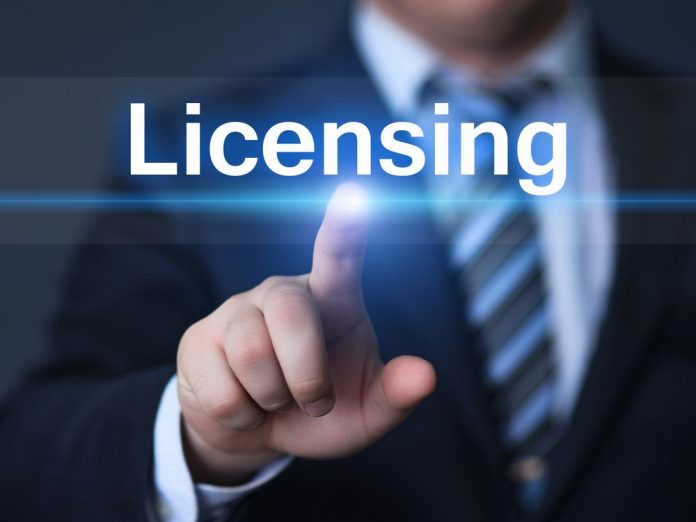This article is written by Mudita Savai who is pursuing a Diploma in Business Laws for In-House Counsels from LawSikho.
Table of Contents
What are trade licenses?
Trade license or business license is a permit given to a person to commence trade or business in a particular area. A trade license is granted by the license department of the municipal corporation. Such a license, cannot be transferred and can only be used for the purpose of which it is issued. In other words, the license cannot be used for any other purpose than that mentioned under it. The application for such license must be made before the commencement of business and the license once issued is valid for 1 (One) year. It is mandatory to have a trade license to run business or trade.
Every license issued is exclusively for the owner of the license. Since the license is issued at a municipal level, the rules in respect of trade licenses may differ from state to state. The holding of a license ensures ethical business practice, and the failure to hold a valid license attracts penalty. This also gives an opportunity to the government to maintain data of the businesses running within its jurisdiction.
The trade license is a means to ensure that the manner and locality in which the business is being carried on is according to the relevant rules, standards and safety guidelines. The provision of trade licenses is laid down by the State government to monitor and regulate the trade within a city.
Since the authority of granting the license lies with the Municipal Commissioner, it leads to a situation of there being partiality, bias, unfairness and arbitrary decision making. Which ultimately leads to a legal battle between the applicant of the license and the authorities.
Eligibility
Any person over 18 (Eighteen) years of age who has no criminal record and is capable of executing legal work is eligible to apply for a trade license.
Registration process
As stated above, the license is granted at the municipal level, for a fee. Such fees shall be based on the nature of business. In Mumbai the trade license is granted by the Municipal Corporation of Greater Mumbai. An application for the same can be made online, by filling a Form of Application for License under Section 394 of the Municipal Corporation Act 1888 for various commodities and Trades mentioned in schedule “M” of the Act. (https://portal.mcgm.gov.in/irj/portal/anonymous?NavigationTarget=navurl://02530c87767f0e0773fd252b0801aa68.) The form requires certain basic information of the applicant, the firm’s name, address of the applicant, address of the premise, Permanent Account Number (PAN) card, Tax Identification Number (TIN), etc. The documents required for making an application for trade license are as under;
- Proof of address and identity.
- Affidavit.
- In case of a company, incorporation documents such as Memorandum of Association (MOA), Articles of Association (AOA), Certificate of Incorporation (COI).
- Cancelled cheque and bank statement.
- Proof of legal occupancy/allotment letter for the premise/lease deed.
- Documentary Proof of establishment of trade.
- No Objection Certificate (NOC).
The time required for processing of trade licenses varies according to the city/region/state where such application is made. For instance the processing time in metropolitan cities is 7 to 10 (Seven to Ten) business days, subject to all documents being in place. While the processing time in smaller cities is upto 30 (thirty) days.
Categories of Trade License
Trade licenses are divided into three broad categories:
- Food establishment, which includes hotels, cafes, restaurants, sale of vegetables, bakeries etc.
- Industries license which includes manufacturing set ups, small local businesses etc.
- Shop licenses which includes a medical shop, barbershop, toy shop, stationary shop etc.
Renewal
As stated above, a trade license one issued is valid for a period of 1(one) year. Typically renewals of licenses are done from January 1st to March 31st. The application for renewal must be made within 30 (Thirty) days from the expiry. A delay in the renewal application may attract a fine which is 50% (Fifty percent) of the license fees. The documents required to be submitted for renewal of license are as follows;
- Original copy of the trade license.
- Challans of the previous year.
- Receipt of tax paid (up to date).
Case Law
As mentioned above, since the Municipal Corporation has the sole authority to grant or refuse licenses it often leads to conflict. One such famous case is that of Govindji Vithaldas & Co. vs the Municipal Corporation of Ahmedabad of 1959 heard by the bench of M Chagla and S Tendolkar. Even though an old case law, it is a noteworthy one since it lays down the problem of the Municipal Corporation’s arbitrariness. Under the said case law, the plaintiff with 31 other plaintiffs challenged the refusal by the Municipal Commissioner of the Ahmedabad Municipality to issue licenses to them for carrying on timber business in a certain locality in Ahmedabad.
Plaintiff no 1 was in the business of timber in the area called City Walls for several years with a valid license. In 1951-52 the license was refused on the ground that in the opinion of the Fire Superintendent the Municipal law was not observed and the margin of five feet around the premises was not kept as required by law. Irrespective of this the plaintiff carried on his business.
In the year 1956-57 his license was again refused on the ground of a zone being fixed for keeping and selling timber wood, and the place in respect of which license was applied for was not within the said zone. The petitioner argued that the refusal to grant the license was ultra-vires of the Constitution, and even if we were to believe it was intra vires the decision was still arbitrary. Section 376 of the Bombay Provincial Municipal Corporations Act conferred enough powers on the Municipal Commissioner to grant or refuse a license.
It is clear from the language of Section 376 that the Legislature did not have as its object in enacting this section to prohibit a business to which under the rules the relevant provision of Section 376 applied. The object was to regulate business. It is equally clear that in the exercise of his discretion the Municipal Commissioner cannot withhold a license from a person who wishes to carry on the business unless he does so for good cause
To justify the statutory discretion, Maxwell’s interpretation of statutes was quoted. if the Municipal Commissioner were to withhold the granting of a license on grounds other than those suggested in this passage of Maxwell, he would not be exercising the statutory discretion at all and in failing to exercise the statutory discretion he could be compelled at the instance of any party aggrieved to exercise the discretion as the law requires him to exercise.
To further attain clarity on the matter, the leaned bench relied on multiple domestic as well as international case laws, such as, Yick Wo v. Hopkins, Harishankar Bangla v State of Madhya Pradesh and Natvarlal Ambalav v. State of Bombay amongst others. Discretion was, as will be noticed, in very wide terms and the learned Judges held that where a law conferred upon an authority unfettered, absolute and uncontrolled discretion, the law would be bad, where the question of policy underlying the law is not involved.
If, on the other hand, the question was one of policy underlying the law as to how the law was to be enforced, and as to how the provisions of the Act were to be carried out, then a discretion, be it unfettered, uncontrolled and absolute, was not bad. In view of this, what we have now to find is whether there is a policy of law underlying the Municipal Act which policy was to be carried out by the provisions conferring discretion upon the Municipal Commissioner to issue licenses under Section 376.
The court, therefore, concluded that, in their opinion, discretion was exercised in accordance with the provisions of law and did not constitute an unreasonable restriction upon the fundamental right of the petitioner to carry on his business, granted to him under Article 19 of the Constitution, since the petitioner’s contention relied heavily on this point, the petition was dismissed.
Conclusion
It can therefore be inferred from the above that Trade License also such an important part of every business owner’s right is highly dependent on the municipal laws governing the particular geographic location, and though the requirement of having a trade license remains the same, the process or approval can vary in each territory.
Students of Lawsikho courses regularly produce writing assignments and work on practical exercises as a part of their coursework and develop themselves in real-life practical skill.
LawSikho has created a telegram group for exchanging legal knowledge, referrals and various opportunities. You can click on this link and join:
 Serato DJ Crack 2025Serato DJ PRO Crack
Serato DJ Crack 2025Serato DJ PRO Crack











 Allow notifications
Allow notifications


